For 30 years, Youth Care Treatment Center in Utah has been a premier provider of residential treatment program for adolescents or teens who are struggling with substance abuse, addiction, and a wide range of mental health issues so they don’t have to fall behind in school.
Residential Treatment Program Overview
Students at Youth Care, a treatment center in Utah, participate in a level system in our residential programs. The students are rewarded points hourly. Points are given for proper school performance, appropriate social interactions, a good attitude, and compliance with rules. The immediate reinforcement helps students correct poor behaviors. When sufficient points are earned, students will progress and receive privileges as listed below. Parents will receive an update weekly which will include information about their child’s current level, school performance, therapy progress, as well as faculty comments.
Level System
Upon arriving in our treatment program, your child will begin on Orientation Level. This level allows the student to acclimate to the program and allows Youth Care staff to get to know the student. Your child will then work through Awareness Level (Level 1), Proficiency Level (Level 2), and Mastery Level (Level 3). Rules for each level at Youth Care’s boarding schools in Utah are available from an admissions counselor.
Activity Hold
This level is used if the student is behind in any homework assignments. At the weekly levels meeting, all students who are six or more assignments behind will be placed on “activity hold”. This means that students do not lose their level, but are held back from all activities with the exception of the gym and service activities in our program. This activity hold will be reassessed for those students on Friday at 5:00 p.m. If the students who were previously on activity hold are now less than six assignments behind, they will then be eligible for all activities provided by our residential program in accordance with their respective levels.
Learning Level
This level is the lowest level of the behavior modification program. The level is used 1) if the student has been involved in serious negative behavior including stealing, physical contact with another student, aggressive behaviors, etc. 2) if the student is refusing to participate in therapy, school or day-to-day activities or 3) if the student was on Awareness and committed an offense that requires being dropped a level. The purpose of Learning level is to give the student time to reflect on past problems, current progress, and future goals. Students that are on learning level are watched closely by our program’s staff to ensure their safety as they may be considered “at risk”. For this reason, and in order that students will have time to think, learning level privileges are minimal.
Hold Level
There are times when a student may make poor choices in our residential program that require the suspension of privileges. During this time there will be a temporary suspension of current level privileges. Hold will be used to provide the student with time to reflect on therapeutic goals. On hold, assignments will be given and must be completed prior to returning to the previous level. Hold will take place from 24 to 72 hours depending on the severity of the poor choice.
Students at the residential programs at Youth Care treatment center in Utah participate in a level system. This system is designed to help the students increase their focus in such areas as positive communication, positive social relationships, and self-respect. Students earn points throughout the day through positive behaviors, such as compliance with rules, respecting themselves and others, and working on individual treatment goals. The immediate reinforcement helps students correct poor behaviors. When sufficient points are earned, students will progress and receive privileges as listed below. Parents will receive an update weekly which will include information about their child’s current level, school performance, therapy progress, as well as faculty comments.
Upon arrival to Youth Care, your child will begin on Orientation Level. This level allows the student to acclimate to the program and allows Youth Care staff to get to know the student. Your child will then work through Levels 1-5. Rules for each level are available from an admissions counselor who oversees our residential programs.
Advancement
Each level in our residential program has a designated number of daily steps. Your child will advance through these steps by earning the required daily points. Once they have completed all the steps in their current level, they may advance to the next level, provided they have completed all of the therapy assignments that are assigned for that level.
Feedback
Asking for feedback is an important skill to learn in our residential program. Students have the opportunity to earn feedback cards by asking our residential program’s staff for feedback, recording the feedback as they heard it, then repeating it back to staff. They can use feedback cards to purchase items and privileges from the student store.
Losing a Level
There are times when a student may make poor choices that require the suspension of privileges. Students may lose a daily step if they participate in such behaviors as lying, stealing, note passing, and not participating in level activities. When a student loses a step, their privileges are “frozen” for a period of 48 hours and they are not permitted to advance in our residential program during that time. When students engage in serious behaviors, such as hurting others, leaving the facility without permission, or having contraband items, they may lose a level. This decision is made by the residential program’s treatment team. When a student loses a level, there are therapeutic assignments that must be completed before advancing back to their previous level.









